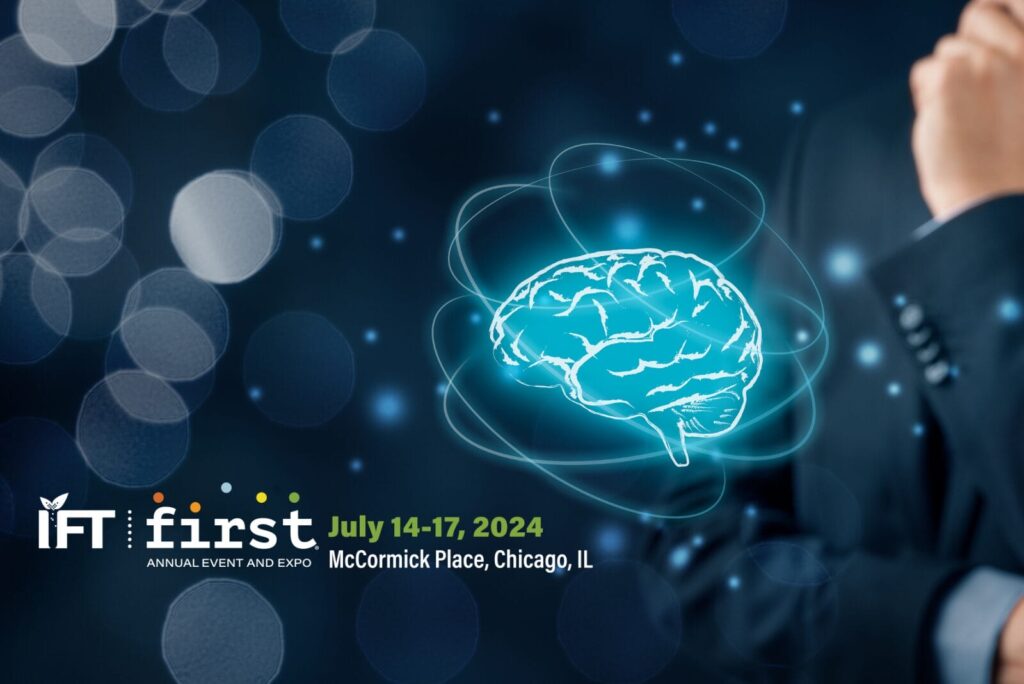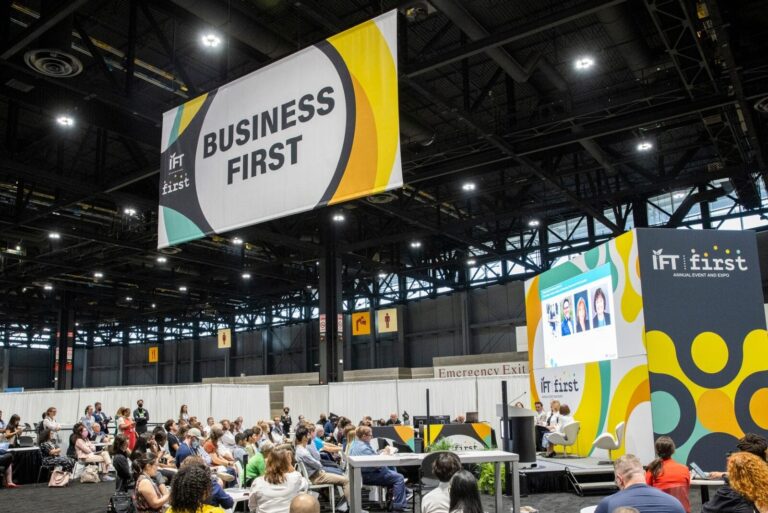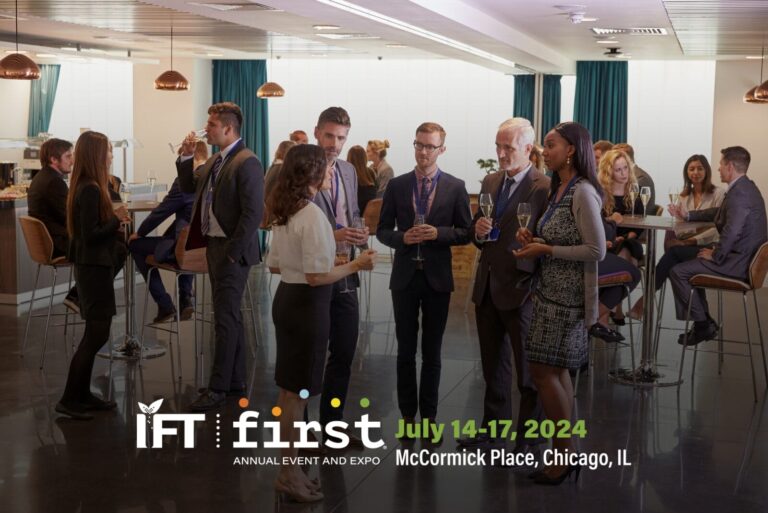CHICAGO — The Institute of Food Technologists’ (IFT) annual event, IFT FIRST, held July 14-17 in Chicago, kicked off with thought-provoking sessions and demos surrounding innovations in the food science industry.
As part of the education sessions, Vanessa Rios de Souza, director of client solutions at Aigora, discussed the role of AI in the rapidly evolving landscape of Fast-Moving Consumer Goods (FMCG).
She opened her presentation, From Strategy to Success: Navigating Product Development Challenges with Machine Learning, by touching on the downsides of the traditional product development cycle.
“That cycle works perfectly if it’s all done properly, but the main drawback is time,” Rios de Souza said. “It’s time-consuming and resource intensive, which is going to impact a lot because it’s a very costly process.”









